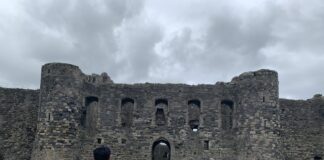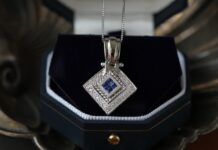I. Introduction The United Kingdom is a country made up of four parts: England, Scotland, Wales, and Northern Ireland. Understanding its history helps us know how it became what it is today. Prehistory: The first humans arrived in Britain around 500,000 years ago. The earliest known inhabitants were the Neanderthals, who were followed by the modern humans, or Cro-Magnons.
II. Ancient and Medieval Periods A long time ago, before anyone wrote things down, different groups of people lived in the UK. The Romans came and ruled for some time. After that, people called Anglo-Saxons and Vikings came and settled. Then, in 1066, a big battle happened, and the Normans took control. This led to kings and lords sharing power and building castles. The Romans invaded Britain in 43 CE and ruled for over 400 years. They built roads, bridges, and towns, and introduced Christianity to the country. The Romans left Britain in 410 CE, and the country was then invaded by Germanic tribes, including the Angles, Saxons, and Jutes. These tribes eventually merged to form the English people. In 1066, William the Conqueror, a Norman duke, invaded England and defeated the English king, Harold Godwinson. The Norman conquest brought about a number of changes to English society, including the introduction of French law and customs.
III. Tudor and Stuart Dynasties (1485-1714):
The Stuart period (1603-1714) was marked by a number of conflicts between the king and Parliament. The period began with the reign of James VI of Scotland, who also became James I of England. James was a strong believer in the divine right of kings, and this led to conflict with Parliament. The period ended with the Glorious Revolution of 1688, which saw the overthrow of James II and the establishment of a constitutional monarchy.
During this time, there were kings and queens with the last names Tudor and Stuart. Some of them, like Henry VIII and Elizabeth I, were famous. They changed the way people in the UK worshiped, and there was a big war between the king and the people’s representatives. England also had a time without a king, called a republic. Later, a king was brought back, but with rules to follow.
IV. British Empire and Imperialism (18th-19th centuries) The British Empire was the largest empire in history, and it reached its peak in the late 19th century. The empire included territories all over the world, from Canada to India to Australia. The British Empire had a profound impact on the countries it colonized, and its legacy continues to be felt today. The UK became very powerful and had a big empire. They sent ships and people to faraway lands and brought back goods. They also took control of some places, even using slaves from Africa. The UK got richer during the time of factories and machines. The queen at that time, Queen Victoria, was very important, and the UK’s empire was the biggest.
V. Modernization and World Wars (20th century): World War I and World War II – Britain fought in both World War I (1914-1918) and World War II (1939-1945). Both wars were devastating for Britain, and they led to a decline in its global power. A big war happened in 1914, and it changed a lot of things. People’s lives changed because of new inventions and ideas. Another big war happened in 1939, and the UK was part of it. They had to face bombs in their cities. After this war, things changed even more, and people got new rights.
VI. Post-War Period and Decline of Empire (20th century) After the second war, many countries wanted to work together to avoid more wars. The UK had a national health system started, and the government helped people more. The empire of the UK slowly became smaller because the countries it controlled wanted to be independent. After World War II, Britain began to decolonize, and it lost many of its overseas territories. Britain also joined the European Economic Community (EEC), which later became the European Union (EU).
VII. Late 20th Century to Present Music and culture changed in the later years. The UK joined a group of countries that worked together for their economies. One leader, Margaret Thatcher, made big changes. The UK also gave more power to Scotland, Wales, and Northern Ireland. The UK left the group of countries later, which was a big decision and had effects on their economy. The United Kingdom is a member of the United Nations, the Commonwealth of Nations, and NATO. It is a developed country with a high standard of living.
VIII. Conclusion Knowing about the history of the UK helps us understand why things are the way they are now. The past events shaped how the country is today. Learning from history can help the UK make good choices for the future.
























